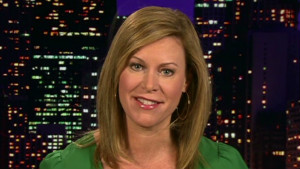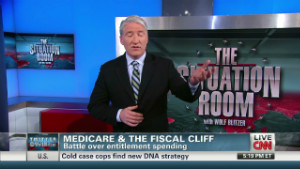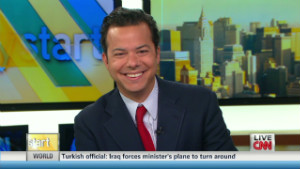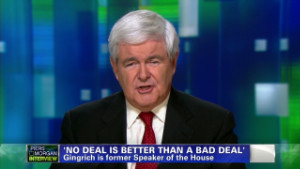(CNN) -- Across the country, a sudden shift is taking place.
Bobbie Cleave, a retired teacher in Utah, has put off plans to get a badly needed car.
Brian Chandler, a data manager in metro Atlanta, is delaying buying a house, despite needing space for his second child due any day now.
Retired police officer Richard Huffman of Michigan may ditch plans to re-enter the work force.
 No fiscal cliff deal in sight
No fiscal cliff deal in sight  King: The battle over Medicare
King: The battle over Medicare  Counting down to the fiscal cliff
Counting down to the fiscal cliff  Newt Gingrich on fiscal cliff
Newt Gingrich on fiscal cliff And several families CNN spoke with said they're shrinking the gift pile beneath the Christmas tree.
As the nation approaches the so-called "fiscal cliff," people are taking steps to cushion their families from the plunge.
To them, the threat to the nation's economy requires preparation -- particularly with President Barack Obama warning that going off the cliff could cost the average family of four more than $2,000.
But some say the fears are just hype.
And others see an upside.
"We need to go over the cliff," says Valerie Stayskal, 58-year-old owner of two small businesses in Addison, Illinois.
As Congress and the White House battle over the $7 trillion worth of tax increases and spending cuts that could start to take effect in January, CNN reached out to people in various walks of life to find out how they're already being affected.
From my home to the House: How to fix the fiscal cliff
The country is 'stuck again'
"The fiscal cliff is just one more thing that makes us wait, feel unsure," says Cleave, 61, who is also a wilderness ranger in Salt Lake City. She shared her perspective recently with CNN iReport.
The economic collapse of 2008 left a lot of people "stuck," she says.
She was "stuck" trying to sell her house, then felt "unstuck a bit" when Obama was first elected "because we hoped he could change things." But things didn't change enough. "We felt unstuck again this election," because the country seemed to send a resounding message about the kind of economic action it wants, including raising taxes on the wealthiest, she said.
"But now we feel stuck again" because there's no sign of a compromise. "It means we freeze, we don't buy as much, we save, we wait."
Cleave's family is Buddhist, "so we meditate on living with the feeling of uncertainty," she says. "It's part of life. But I think many people are in waiting and saving mode because they feel confused about how this will all play out."
Lela Ladd is one of them. Her family in McCook, Nebraska, is "living frugally, anticipating future tax increases," she says.
"My husband and I are not exchanging Christmas gifts. In the past, we spent about $500 on each other."
The couple has three children and eight grandchildren -- each of whom will receive only one gift each from them this year
That frugality was already spurred by the hard times of the last several years, but the "cliff" is adding to that stress.
"It is hard not to be angry at our elected officials," says Ladd, 57, a self-employed insurance agent. "They have forgotten why we elected them: to watch out for our country. They really don't know what it is like to walk in our shoes. You have to be rich to be elected to anything anymore, so the working class is no longer represented."
Surveys show most Americans want compromise on Capitol Hill. A Gallup Poll found 62% want Democrats and Republicans to reach a deal.
But many doubt it will happen. A Washington Post/Pew Research Center poll found 49% of Americans do not expect an agreement by the end of the year, while 40% do.
The frustration and fear could slice holiday sales, as people try to hold on to some cash, the National Retail Federation warns.
It's too soon to know whether the cliff fears are having a Grinch-like impact, and sales so far have hit new highs. But the federation is concerned about the weeks ahead.
"Before Thanksgiving, the threat of the fiscal cliff seemed remote to most Americans," says David French, the NRF's top lobbyist, who is pushing both parties for action on the issue. "Now, more and more people are focused on it, and the threat is becoming more real... It's uncomfortable for retailers."
Same players, same disputes in fiscal cliff debate
Government-style accounting would put a business 'in jail,' owner says
Owners of two small businesses in New Jersey told CNN they're nervous and frustrated.
Any business that followed the same "method of accounting as our government" would "be in jail," complains Bob Bellagamba, CEO of Concorde Worldwide, a limousine company.
He wants a decision on the fiscal cliff "so I know how to run my business." Depending on the outcome, he may have to lay off some employees, he said.
Charles Altiero, owner of Freehold Jewelers, said tax increases might help him in one way. "More people are going to have to sell their gold to pay their taxes."
But it would hurt his customers' buying power. So, he said, he's open to the idea of paying more taxes to help avoid going off the "cliff."
Quality Realty in Opal, Wyoming, has dropped an annual tradition.
"We normally present our biggest customers with appreciation gifts. This year everyone gets a card," said office manager Mary Hall.
That's due to the state of the economy in general, including the fiscal cliff, she said.
Hall, a mother of five, is also the small town's mayor.
"I can see it affecting the programs we participate in with regard to funding for capital improvements," she said. No programs have been cut yet due to the fiscal cliff, but "as the federal government starts cutting and limiting spending, the states tend to tighten their belts as well," she said.
Tax increases would make it 'not worth' re-entering work force
The belt-tightening many Americans have been doing for years prompted Richard Huffman,a 63-year-old retired cop and CNN iReporter in Saint Joseph, Michigan, to consider re-entering the work force. He has six daughters and 14 grandchildren.
Now, he's changing his mind. "I will not go back into the work force if taxes are to go up on the middle class," he says. So much of the money he would make would go to taxes that it wouldn't be worth working. "These tax increases would take away from our income drastically."
'I'm being penalized for wealth'
It's not just members of the middle class who are nervous about what lies ahead.
Brian Chandler, a 34-year-old in Marietta, Georgia, says he's among those Americans with incomes over $250,000 whose taxes would go up under Obama's plan.
"I am technically considered 'rich,'" says Chandler. "I did this through hard work, long hours, taking on work that clearly wasn't my responsibility, networking, etc. Now it sort of feels like I'm being penalized for that, in higher taxes, because of others' lack of financial responsibility."
"I am concerned about the reduction of take-home income. I am also concerned taxing those above $250,000 a year may counter innovation and prevent some from working as hard as they do to earn that amount of money."
He and his wife have a son, and their daughter is due this month. They need more space. But he's no longer looking for a bigger home. "I'm watching how it will all play out."
The road to the fiscal cliff paved with good intentions
In support of 'cliff' diving
While polls show it to be a minority, there is a contingent of Americans who want the country to go off the fiscal cliff.
"It will help because it will finally reduce the deficit with substance -- not just words," says Valerie Stayskal of Addison, Illinois. It will be painful for several years, but best in the long term, the mother of three and soon-to-be grandmother of twins argues.
"I want my kids and their kids to have a good life in a country that is stable and flourishing. I want them to have opportunity. If we don't dig deep into the deficit, they are made to be burdened with this debt."
Patrick Drake, of Norcross, Georgia, offers another upside. All the talk about the fiscal cliff "is very necessary for citizens and representatives to inform and engage," he says.
"Definitely, I have never been a financially responsible individual until I began paying attention to the fiscal cliff discussions and the correlation to my personal finances."
'It's all hype!'
But some others say they're sick of all the talk -- which, they believe, will ultimately prove to be another example of the government scaring the public about something drastic that does not end up happening.
"This is government hype to the umpteenth degree," AnnMarie Blodgett wrote in our Facebook discussion. "Everything gets a name these days. None of it matters."
"I want to ban the phrase 'fiscal cliff,'" added Monica Rodriguez. "There are other things happening in the world."
But Dolores Casillas, who weighed in on Twitter, said she is very concerned about what may lie ahead.
The 27-year-old is out of work and has already cut back expenses.
"I was on a phone contract but since it is too expensive now I go prepaid. I always look for deals on everything and I bargain," she says.
Now, with the "cliff" getting closer and closer, Casillas says she's considering dropping something many Americans can't imagine living without: coffee.
"But it's hard when you need it to keep you up," she adds.
Are concerns about the fiscal cliff affecting your life? Join our discussions at Facebook, Twitter, CNN iReport, or in the comments section below.
{ 0 comments... read them below or add one }
Post a Comment